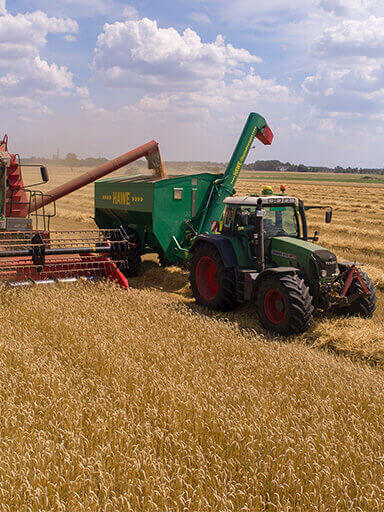What Accidents Can A Work Injury Solicitor Help Me Claim For?
A work injury solicitor can help you make a claim after a huge variety of accidents in the workplace if your employer bears at least some of the responsibility.
It is not impossible that your employer – or their insurance company or solicitor – has tried to convince you that you are wholly responsible for your accident. In reality, this may not be the case.
Every employer in the UK is required by law to provide a safe environment for its employees to work in. If it can be proven that your employer has failed in their “duty of care” to you, you may be due compensation.
It is worth underlining the sheer range of accidents a work injury lawyer can assist you in making a claim for. Here are some common – and some more unexpected – examples:
Accidents That Work Injury Solicitors Can Help You Claim For
The list of accidents a work injury lawyer can help you make a claim for compensation regarding include but are not limited to:
1) Building Site Accidents
Despite the often great care taken by the builders, contractors, and tradespeople who work on them, construction and building sites remain potentially dangerous places to work.
As a result, building site accidents are a relatively common type of case for personal injury solicitors to work on.
The variety of situations that lead to accidents on construction sites is staggering. Everything from falling loads to moving vehicles to harmful substances like asbestos to trips and falls to vibration injuries.
What many people in the industry who have suffered an accident or injury at work do not realise though, is that in order to make a claim:
- An accident can be partly your own fault but also partly your employer’s
- A co-worker can be at fault or partially at fault
- You can have been on a residential property rather than a true “building site”
2) Scaffolding Accidents
Another common source of workplace-related personal injury claims is scaffolding accidents.
A staggering 2.3 million workers in the UK use scaffolding in one way or another in their working lives. Several thousand people each year are injured as a result of this.
The way these injuries occur varies. But some of the most common scaffolding-related incidents that lead to personal injury claims include accidents:
- During scaffolding construction or take-down
- Caused by defective or improperly maintained scaffolding
- Caused by planking that is insufficient or not regularly replaced when required
- Contributed to by co-workers who do not have sufficient training or experience
- Caused by scaffolders being made to work in hazardous conditions
3) Machinery Accidents
Machinery accidents are still worryingly common in the modern workplace. From improperly maintained machinery to poorly designed equipment to heavy machinery without sufficient guards pinning workers, many things that can go wrong.
This is so important that there are a large number of UK and European Health and Safety laws that cover machinery in the workplace. Unfortunately, not every employer follows them.
Some of the key regulations that your employer should have abided by include:
- PUWER – the Provision and Use of Work Equipment Regulations 1998 covers all the basics of machine safety, training, and instruction.
- Control of Vibrations at Work Regulations 2005 – covers tools and equipment that vibrates, a huge source of workplace injuries from equipment such as power tools.
- Employer’s Liability (Defective Equipment) Act 1969 – covers situations where an employer provides you with defective equipment.
If you feel there is a chance your employer did not, it is well worth reaching out to one of our dedicated team of specialists.
With 76 years of combined experience in this niche field of law, we have achieved millions of pounds of compensation for deserving clients.
4) Accidents Caused By Inadequate Training
This is one of the situations in which it is sadly relatively common for employers to claim that an accident at work was the fault of the victim when liability truly lies with them.
If you have suffered an accident at work and you think any of the following may be true, there is a possibility you may be able to make a personal injury claim:
- You did not receive proper training
- You were forced to undertake an activity you were not properly instructed how to do
- It is clear there was a safer way for colleagues or your employer to tell you to proceed
- You had to work in cramped or badly lit conditions
- You had received training from a previous employer, but not this one
5) Office Accidents
Compared with a building site, being a dozen metres in the air on scaffolding, or operating heavy plant machinery, the office might seem fairly benign.
Yet offices cause several thousand serious accidents every year in the UK. These can include things like:
- Manual handling injuries (moving furniture or equipment)
- RSI (Repetitive Strain Injuries from operating computer equipment)
- Slips, trips, and falls
But just like those more dangerous-sounding environments, several thousand people every year reach out to a work injury solicitor they can trust to talk about the compensation they might be entitled to following an accident in the office.
Does that sound like you? Reach out to us today on 0800 0747 644 for a no-obligation consultation including some simple, straightforward advice about your claim.
Alternatively, fill in the contact form to request that we call you back at a convenient time.
Here at Grieves Solicitors, Personal Injury Specialists, we offer a no win, no fee solution to funding your claim (a conditional fee agreement) which means that you do not have to worry about legal costs and expenses. You can read about our no win, no fee agreement here.
Let us help you





